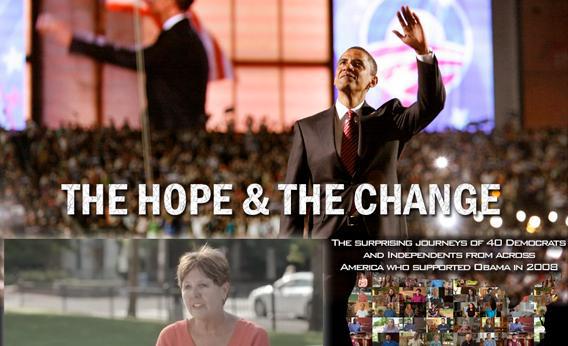Is that leaked video of a high-dollar fundraiser a disaster for Mitt Romney, a cause for panic, a crisis that probably has Marco Rubio memorizing the names of Iowa precinct chairmen for 2016? Probably. It’s also packed with smart mini-memos of strategy, straight from the candidate’s brain. At one point, Romney tells a crowd of people who are donating at least $50,000 that they can’t expect him to just go and tear out Barack Obama’s jugular.
“We speak with voters across the country about their perceptions,” says Romney in the video. “The 5 to 6 or 7 percent that we have to bring onto our side—they all voted for Barack Obama four years ago. So … when you say to them, ‘Do you think Barack Obama is a failure?,’ they overwhelmingly say no. They like him. But when you say, ‘Are you disappointed that his policies haven’t worked?,’ they say yes.”
Conveniently enough, this is the message that some of the biggest pro-Romney, anti-Obama super PACs are starting to deploy. For weeks, David Koch’s Americans for Prosperity has run ads in which former Obama voters explain why they’ve given up on the guy. Yesterday, the Wall Street Journal scooped that Ameritrade’s Joe Ricketts would spend $10 million running commercials starring “disaffected Obama supporters talking about why they plan to support Mr. Romney.”
Back in May, Ricketts was presented with a plan to spend the same amount of money on a very different campaign. That one would have used a black spokesman to reignite the Jeremiah Wright issue. It was always a moronic idea for an ad. The conservative base fears Barack Obama the way a deer fears an oncoming 18-wheeler, but Republicans are already counting on the base to vote. They need those disappointed people. They need to tell them they’re not alone.
The Fellini of this campaign will be Steve Bannon, chairman of the late Andrew Breitbart’s news group, director of the friendly Sarah Palin documentary The Undefeated. He’s already done the work. His film The Hope and the Change, distributed by Citizens United, is a kaleidoscope biography of 40 people who voted for Obama and proceeded to work through the Kubler-Ross stages of grief. For 60 minutes, they appear on-screen—their first name, party affiliation, and state—and explain what happened.
“Everyone was just so excited for this savior of our nation,” says a rueful Phyllis, from Florida.
“I watched his speeches for the first two and a half years,” says Heaven, from North Carolina, “and it got to the point where he really is repetitive.”
“Nobody comes to help bail me out,” says Jack, from Iowa. “There’s a lot of people that are struggling. Where’s their bailout?”
Every sane gripe about the Obama years makes it in there. Spoken by people like these—a smorgasbord of black, white, Asian, Hispanic, and Indian faces—they just sound logical, and sad. It took much of a year for Bannon to find them, aided by pollsters Pat Caddell and Kendra Stewart. They held focus groups with over 1,000 participants, in Florida, Virginia, Pennsylvania, Ohio, Indiana, North Carolina, and Ohio. The best subjects made it into the movie.
“There were people who’d say ‘Gee, I don’t know anything, what do you want me to say?’ ” says Bannon. “I’d tell them, ‘This isn’t TV. I’m just going to ask questions.’ And that’s why this is striking to people. There is real fear and anxiety on display here. These people still like Obama, so their criticism is said more in sorrow than in anger. Someone who’s on the fence looks at them and thinks: ‘I hear myself up there.’ ”
That’s the goal of AFP’s ads, too. Earlier this year, the group’s bottomless funds were sunk into “educational” ads that informed voters of the Solyndra scandal. They ran in key states. If they moved the needle, that was temporary—at the Republican National Convention there was far more talk of President Obama’s musings about small businesses and who does or doesn’t “build that.” The new ads ask, softly, if Obama’s really “earned your vote,” by introducing voters to more first-names-only disappointed types. They were found at weekly AFP focus groups in swing states. They won’t be the last.
“Most voters who like Obama like him personally,” explains AFP spokesman Levi Russell. (He used to work with the much more base-focused Tea Party Express.) “We’re asking someone to break up with a person they probably like. We’re asking them to separate emotional attachment from the record.”
Bannon’s movie came as a total surprise to AFP—“it’s like an hour of the ads we have on TV right now!” laughs Russell. But a little bit of accidental copy-catting is unavoidable. The sad-former-Obamaian is an archetype worth stealing. Even in 2016: Obama’s America, the surprise hit documentary by Dinesh D’Souza, our narrator tells us that he wanted to believe in Mr. Hope and Change. “Just like the rest of the country, I was intrigued by Obama,” says D’Souza. “We both have a kind of mixed-race background.” And he liked Obama’s 2004 speech to the Democratic National Convention. His subsequent investigation of the president’s Kenyan anti-colonial thinking was motivated by—ah, this phrase again—sorrow, not anger.
Romney knows that, and when a room of wealthy Floridians tell him to nail Obama, it’s up to him to break the news. “They voted for him,” says Romney of the disappointed voters. “They don’t want to be told that they were wrong, that he’s a bad guy, that he did bad things, that he’s corrupt. Those people that we have to get, they want to believe they did the right thing, but he just wasn’t up to the task. They love the phrase that he’s ‘over his head.’ ”
They love it. Once this story runs itself out, they’ll be hearing it again.
